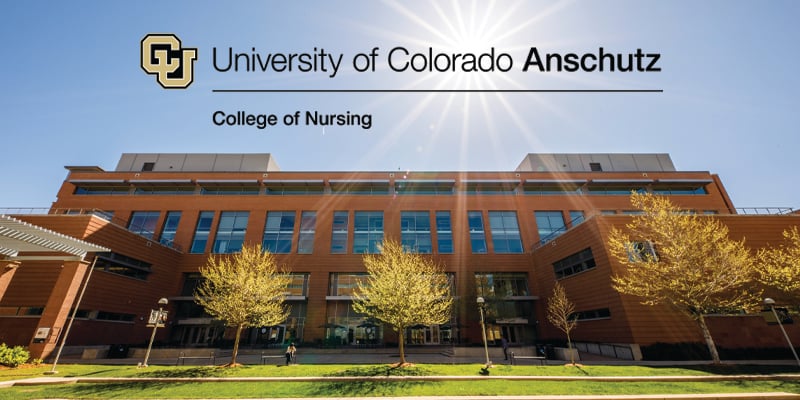“Those who can, do; those who can't, teach.”
George Bernard Shaw never met a nursing educator.
In the sterile hallways of America's healthcare system, a critical shortage is brewing—and it's not in hospital beds or medical supplies. It's in nursing education. Picture this: 65,000 eager nursing students turned away annually, not for lack of passion, but because there aren't enough faculty to train them.

CU Nursing Faculty Development Coordinator and Professor Gail Armstrong, PhD, DNP, ANCS-BC, RN, CNE, FAAN. |
University of Colorado College of Nursing at Anschutz Medical Campus Faculty Development Coordinator and Professor Gail Armstrong, PhD, DNP, ACNS-BC, RN, CNE, FAAN, declares, “Teaching is a critical skill in nursing and many nurses excel at it. And there is value in enhancing the discrete skills that makes someone an excellent educator.”
A program that Armstrong has helped build — the Nursing Education Certificate (or NEC) — is helping nurses use the skills they already have to become excellent nursing educators.
The Numbers Don't Lie
The American Association of Colleges of Nursing paints a stark picture: a 7.8% faculty vacancy rate in 2023, with over 1,900 positions empty across more than 900 nursing schools. The problem? Experienced educators are retiring faster than they can be replaced.
“The nursing faculty vacancy rate is pretty high, and that number has been consistent for the past few years, so we need nurses who have the expertise and interest in teaching nursing to fill those gaps,” Armstrong says. “It’s critical nurses going into academia have the tools and knowledge to become excellent educators so we can have a strong nursing workforce.”
Enter the Nursing Education Certificate
CU Nursing's innovative program isn't just another academic checkbox. It's a lifeline for nurses looking to pivot, inspire, and reshape the next generation of healthcare professionals.

CU Nursing PhD and Nursing Education Certificate student Kim Kassab, MS, APRN. |
Take Kim Kassab, MS, APRN, who is currently earning her PhD from CU Nursing. "I wanted to do more than just practice nursing," she explains. "I wanted to teach it."
Kassab worked as an Acute Care Clinical Nurse Specialist (CNS) at UCHealth Memorial Hospital in Colorado Springs. She did some teaching there and enrolled in NEC courses because she wanted to expand her role of being an APRN and enhance her understanding of the role of a nurse educator role.
“I really enjoy teaching nurses,” she says. “I know how important it is to learn about nursing and be a good practicing nurse, and I wanted to enhance my skill set. This certificate helps me do that.”
CU Nursing’s program is an opportunity for graduate students or nursing professionals who have an interest in teaching but don’t have any formal training to learn about nursing education. The classes provide students with an overview of how to be a good educator.
“It’s different than earning a degree,” says Armstrong.
Nursing professionals, bedside clinicians, preceptors, patient educators, and people who aren’t currently earning a degree can enroll.
Armstrong says oftentimes, new nurses learn early in their careers how much teaching and education is involved in nursing. Some nurses enjoy the teaching aspect and want to focus on education full-time either as a faculty member, instructor, or patient educator. Others are looking to enhance their current skill set to help teach the next generation of nurses through precepting.
“Teaching is also a wonderful way to diversify one’s nursing practice,” Armstrong says. “Working full time in demanding clinical settings can be stressful. Sometimes a nurse is looking for other ways to share their expertise and inspire nurses who are beginning their nursing journey. This is an opportunity for nurses to have another way to share their expertise and inspire nurses who are beginning their nursing journey about what it takes to be an educator.”
More Than Just a Side Gig
For DNP alum like Damon Toczylowski, teaching isn't a fallback—it's a calling. Juggling a full-time cardiology role and family responsibilities, he sees education as the heartbeat of healthcare evolution.

CU Nursing alum Damon Toczylowski, who passed the CNE exam. |
"I've always been a teacher at some level," Toczylowski says. “Now, I can make it official.”
When he discovered that he could formalize it while in the DNP program and sit for the Certified Nurse Educator Exam, “that was just a home run for me.”
“These classes are an avenue to show how important education is, and you need to be able to educate educators,” Toczylowski, who passed the CNE exam, says. “The program shows that CU Nursing is so invested in not only nursing as a specialty but nursing education as a specialty too.”
Julie Grant, another program participant, puts it bluntly: "This isn't about memorizing textbooks. This is about supporting students who are nervous but determined to save lives."
“These classes are giving me a knowledge base to be a better educator, and I think it’s important that we have educators who know how to do that,” Grant says. “I think in nursing it’s so important that we’re good at educating and these classes are giving me the resources to do that.”
Grant has always wanted to be a nurse educator and works as an associate professor at a community college in California and knew taking classes in the program was a no-brainer.

Nursing Education Certificate student Julie Grant. |
“It’s been so helpful learning how to talk to students because some students I teach this is their first degree and they’re nervous,” she says. “Learning how to talk to students in a supportive way is really emphasized in these classes.”
The Unexpected Perks
According to Armstrong, the program offers flexibility that is great for a working professional. Online, asynchronous classes. No prerequisites. At $785 per credit hour, tuition that isn’t budget-busting. Students can take one class per semester (nine credits total), allowing them to finish the program in a year.
“Getting my PhD is a priority, and I can’t go back and get my Master’s, so this program gives students like me a much more accessible option. It’s also financially accessible,” Grant says.
“Sometimes tuition can inhibit people from pursuing certain things, and while it was an increase to my overall tuition, I think of it as now I have these new skills that I can use within my everyday nursing practice and apply them,” Kassab says. “It’s lifelong learning for nursing, and I think if I think nurses shouldn't get complacent about that. If you have an opportunity, you should take your opportunity.”
The classes give students a feel for different nurse educator roles, including acute care, community care, and online teaching. Nurses also learn about developing curricula, program evaluations, the best practices to enhance teaching, and evolving education roles.
|
Learn more about earning a Nursing Education Certificate by scanning this QR code. |
|
|
Armstrong says the most successful students in the program are ones who are open-minded about teaching, learning, and how to become an effective educator. The courses allow students to have the time and space to think about their own experiences as learners.
“It’s very thought-provoking content,” Armstrong says. “The content spurs a lot of students’ creativity and offers creative engagement so they can think about what kind of educator they aspire to be.”
The Bottom Line
In a profession where knowledge can mean the difference between life and death, nurse educators aren't just teachers. They're lifelines, mentors, and the critical bridge between theory and practice.
Shaw got it wrong. Those who can, teach—and those who teach? They're changing the world, one nurse at a time.
The nursing education revolution has begun. And it starts in the classroom.




